
Second Sunday of Advent
Both our readings today cry out to us from the wilderness. The People of God in Isaiah 40:1-11, have been forcibly taken from their homeland to be slaves in a foreign place. In Mark 1:1-8, it is John the Baptist whose voice calls to us. When we find ourselves in the wilderness our readings instruct us to cry out. The exiles in Isaiah are not sure whether this will do any good: “what shall I cry?” “the people are but grass” no one is listening, no one cares, will speaking really make a difference, will anything change? God gives us a hint, the glory of the Lord shall be revealed, because “the mouth of the Lord has spoken”. We need to remind ourselves that words are the most powerful thing we have: in the beginning God spoke and the whole world of possibilities came into being. If we want to find a way in the wilderness and rivers in the desert we need to find our voice. And then we need to use it. To bring to light all the ways in which our world can leave people in the wilderness and to reimagine a world in which the wilderness can be transformed.

Wreath Making Workshop
On Tuesday, 5 December 2023, 7-9.30pm, come along and learn how to make a Christmas wreath for your door.
All materials provided – you are welcome to bring along any extra adornments!
Tickets £40 - Glass of mulled wine and mince pies included.
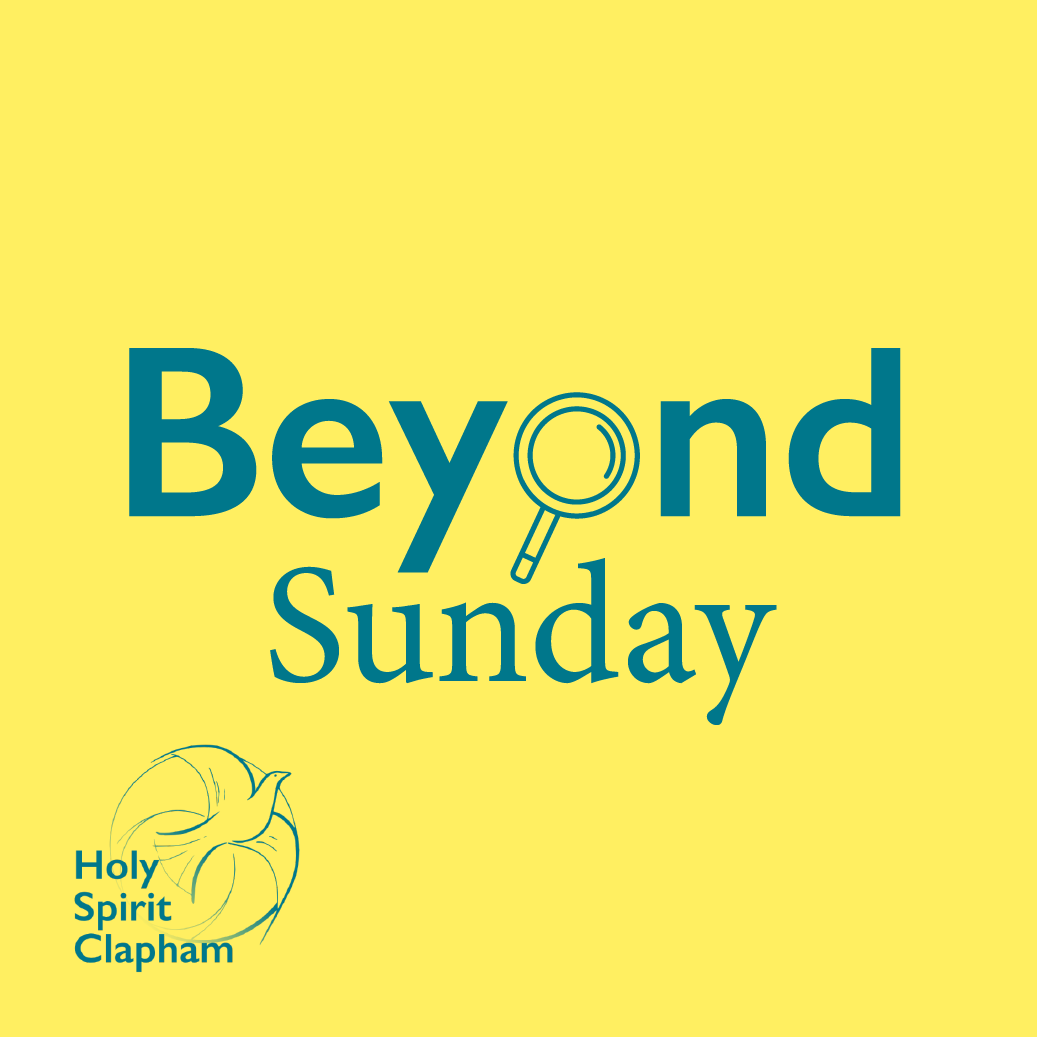
Launch of Beyond Sunday
On Thursday 30 November we launched our new programme of talks and discussions, Beyond Sunday.

Advent Sunday
We're all doomed! Wars and rumours of wars, death, persecution, famine and earthquakes. Every age sees parallels between the difficulties of their own times and apolcalyptic texts such as the one we hear this morning in Matthew 24:1-14. The advice given then is still pertinent to us now: beware being led astray; learn to endure; these are but the birth pangs... Our passage begins with the disciples being impressed by the size and grandeur of the temple. Jesus responds by predicting its collapse. The things that look strong and secure are not necessarily the ones that you should put your trust in: Temples crumble, nations fall, markets crash, economies tank. In an uncertain world Jesus does not offer us certainty. We can never work hard enough, be pious enough, acceptable enough, or attain enough to leave all our uncertainties and insecurities behind. Instead, faith shows us that our security lies in relationship. Today as we welcome the newly baptised we recall that we are loved, that our security and our identity rest in God who created and sustains all things and loves us unconditionally. This may not give us certainty but it gives us confidence and courage to live as people whom God claims as her own.
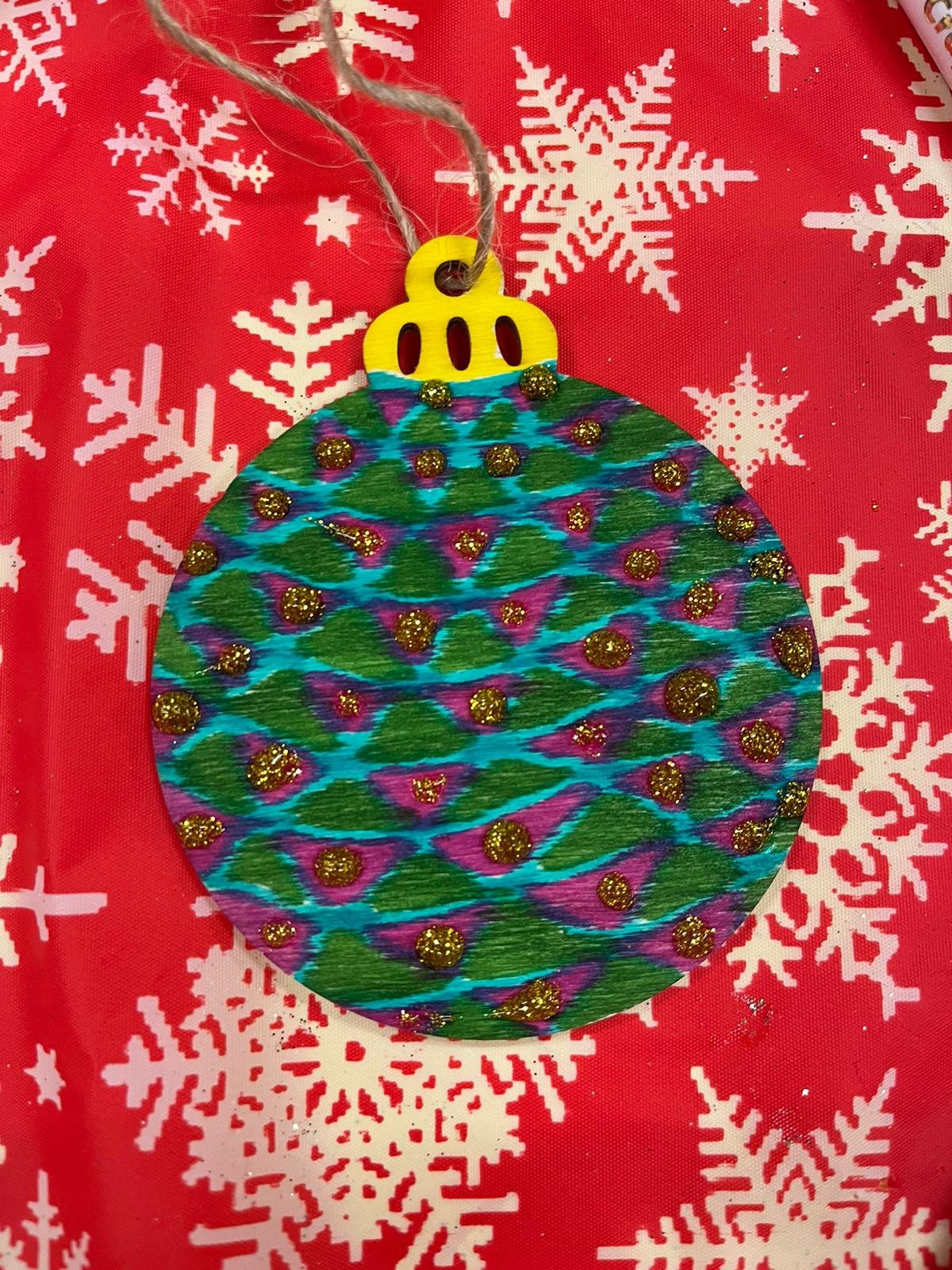
Thank you!
This year’s Christmas Fair took place on Saturday, 25th November. Huge thanks to the Events team (Judith, Kathryn, Paula and Rachel) and all the volunteers, musicians, singers and stallholders who, together, made the day such a success.


Christ the King
It is pretty easy to distinguish a sheep from a goat. It is also pretty easy to distinguish a king from his subjects, one with power from one with no power: those being served have power and authority, those serving them do not. It’s all pretty binary and straightforward. But what happens when the sheep start acting like goats and the goats like sheep? Today we celebrate the feast of Christ the King. At first sight, the Kingdom of God looks pretty binary too: the sheep are in, the goats are out, those who serve are in and those who do not are out. Jesus has just given power to those who do not have it and taken it from those who do. But Jesus never takes power from anyone or exerts power over anyone. Instead, he offers everyone the opportunity to use their own power. When we choose to use our power to serve, not those with power but those without power; when we give voice to the voiceless, champion the weak and care for those in need, we become part of the Kingdom of God.

10:30 Family Service for The Christ is King
It is pretty easy to distinguish a sheep from a goat. It is also pretty easy to distinguish a king from his subjects, one with power from one with no power: those being served have power and authority, those serving them do not. It’s all pretty binary and straightforward. But what happens when the sheep start acting like goats and the goats like sheep? Today we celebrate the feast of Christ the King. At first sight, the Kingdom of God looks pretty binary too: the sheep are in, the goats are out, those who serve are in and those who do not are out. Jesus has just given power to those who do not have it and taken it from those who do. But Jesus never takes power from anyone or exerts power over anyone. Instead, he offers everyone the opportunity to use their own power. When we choose to use our power to serve, not those with power but those without power; when we give voice to the voiceless, champion the weak and care for those in need, we become part of the Kingdom of God.

Second Sunday before Advent
As we head towards the end of the church year and our texts focus on the end times. Like last week, both of our readings this morning are about judgment. Zephaniah 1:7-18, predicts a harsh outcome for his people; a similar fate awaits the lazy servant in the parable of the talents in Matthew 25:14-30. The same reason is identified by both texts: misuse of the gifts that have been given. The book of Zephaniah charts the undoing of God’s good creation by humanity: a desire to possess and hoard and to use resources for solely for our own good. The poor servant in the parable does not appear to have been acting for personal gain, instead he acts out of fear: it is better, he thinks, to preserve what he has than risk losing it. The root of this fear is a lack of trust which prevents him from using what he has. Both readings ask us to consider what we place our trust in and what we look to for security. Do we trust God to provide us with all we need to flourish? Everything we have and everything we are, is given freely. God trusts us to risk using it to build up of the whole of God’s creation.
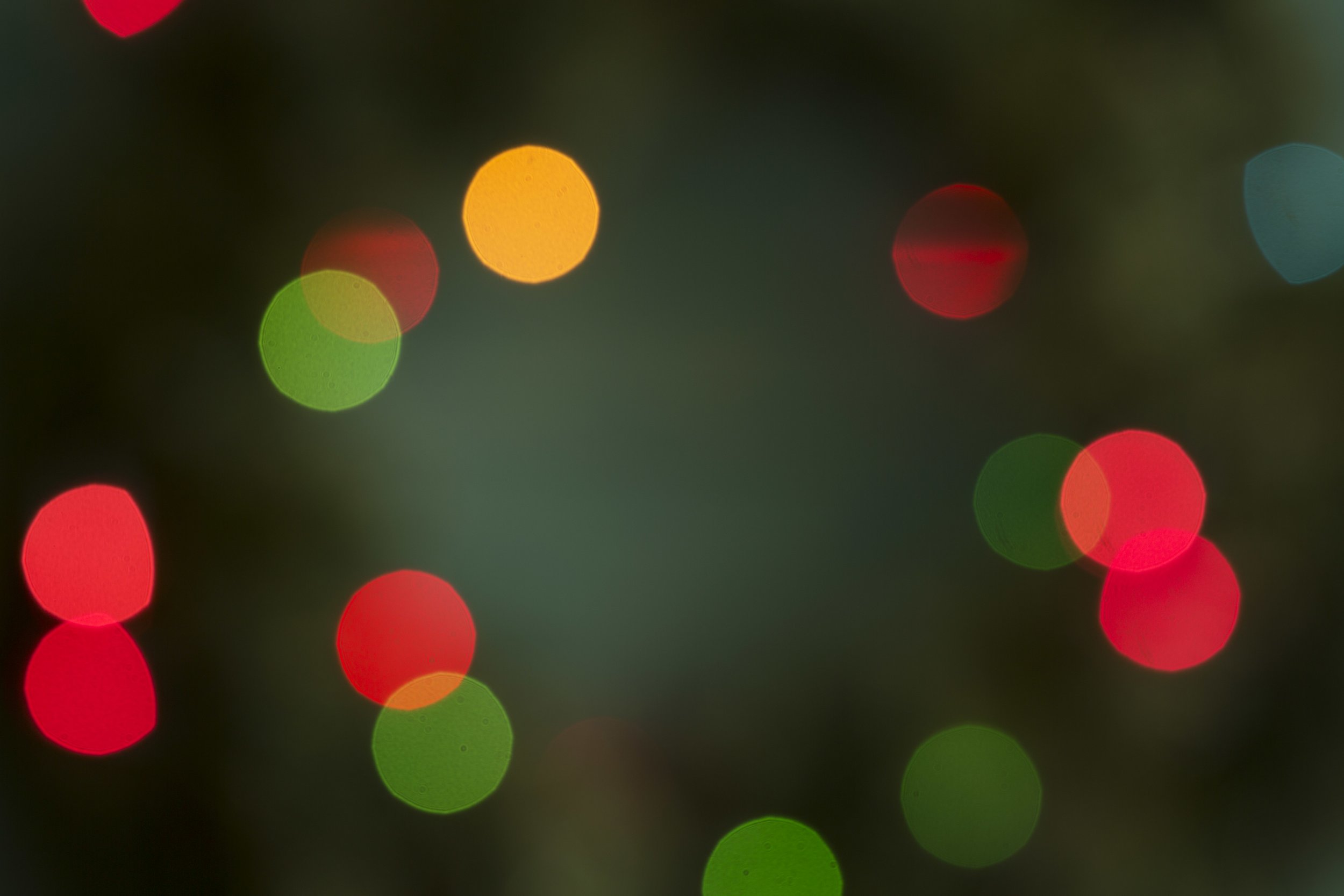
Christmas Fair 2023
This year, the Christmas Fair will be held on Saturday 25th November from 12noon until 4pm in church.
Come along and join in the festive fun with craft stalls, mulled wine & mince pies, kids' activities and live music.
Everyone welcome, no exceptions!

Remembrance Sunday
This Sunday is Remembrance Sunday when we gather at the war memorial to honour the lives of those whose lives have been given and taken away in wars and conflicts past and present. It is a day of deep reflection, a time for sorrow and penitence. Our first reading, Amos 5:18-24, lambasts those who would glorify judgment and punishment, recalling that we are all under judgment and calling us to live lives of justice and righteousness in which every life is treasured and valued. In our gospel, Matthew 25:1-13, Jesus tells the parable of the wise and foolish virgins awaiting the arrival of bridegroom: a symbol of the arrival of God’s reign of peace and justice. His concern is with how we respond to its delay. This is a real concern for us as we experience seemingly endless conflict: do we resign ourselves to the inevitability of conflict or do we remain faithful to the vision of peace and reconciliation? And if so, how is this faithfulness lived out in our lives together?

Fourth Sunday before Advent
We're all doomed! Wars and rumours of wars, death, persecution, famine and earthquakes. Every age sees parallels between the difficulties of their own times and apolcalyptic texts such as the one we hear this morning in Matthew 24:1-14. The advice given then is still pertinent to us now: beware being led astray; learn to endure; these are but the birth pangs... Our passage begins with the disciples being impressed by the size and grandeur of the temple. Jesus responds by predicting its collapse. The things that look strong and secure are not necessarily the ones that you should put your trust in: Temples crumble, nations fall, markets crash, economies tank. In an uncertain world Jesus does not offer us certainty. We can never work hard enough, be pious enough, acceptable enough, or attain enough to leave all our uncertainties and insecurities behind. Instead, faith shows us that our security lies in relationship. Today as we welcome the newly baptised we recall that we are loved, that our security and our identity rest in God who created and sustains all things and loves us unconditionally. This may not give us certainty but it gives us confidence and courage to live as people whom God claims as her own.
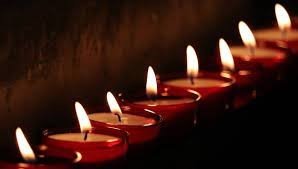
All Souls Day
Thursday 2nd November 7pm.
The service provides a time and place for quiet prayer and reflection, so that we can remember before God all those we have loved who have died.
There is a list at the back of church for you to add the names of the loved ones you would like to be remembered.

Have a heavenly All Hallows’ E’en!
ON Tuesday 31 October 2023, 5-6.30pm Dress up and join us for crafts and games in celebration of all saints and all souls at our annual Halloween extravaganza for kids.
Jump for donuts, make a ghost cake, follow our All Hallows trail.
Remember to bring your carved pumpkin to enter the competition.
PRIZES for best costume and best carved pumpkin (to be awarded at 6pm).

Twenty First Sunday after Trinity All Saints
Today we celebrate the feast of All Saints and both our readings speak of those saintly ones who have been through suffering. Revelation 7:9-17, tells of those who have been through tribulation but now, God blesses them and wipes the tears from their eyes. In the New Testament it is not just the few who have experienced persecution who are called saints but the whole community of believers. In Matthew’s version of the beatitudes, Matthew 5:1-12, those who suffer: the hungry, the oppressed, the bereaved, are blessed not because of their suffering but because their suffering is addressed: blessed are the hungry, not because they are hungry, but because they shall be filled. Here it is not God who will wipe the tears from their eyes but the peacemakers and those who hunger and thirst for righteousness. In a community of saints there is no longer any need for Saints, particular, special, venerated individuals, because there is no need for the one to be sacrificed for the many – instead the many work together to ensure that the one never has to be sacrificed.
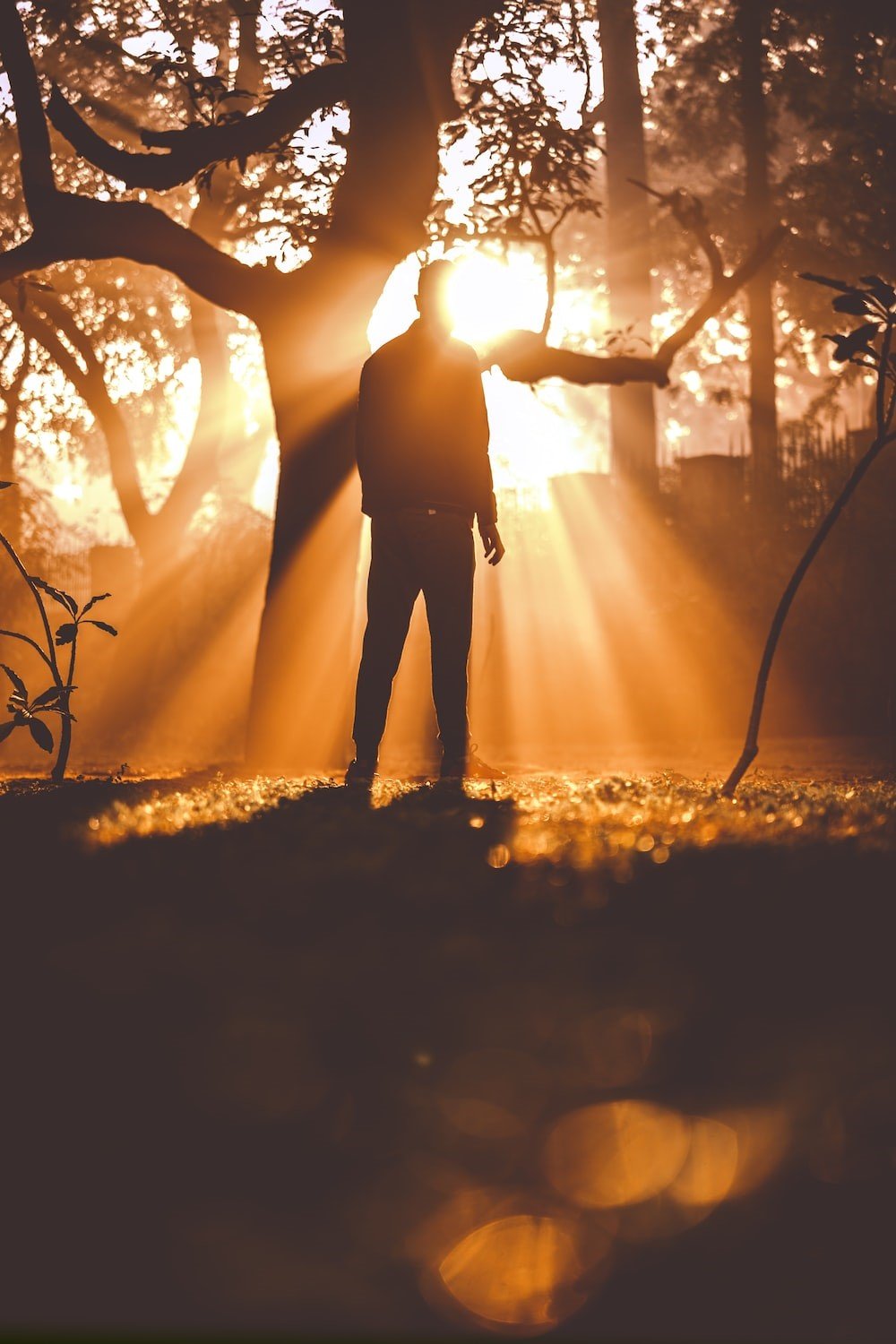
10:30 Family Service for The Twentieth Sunday After Trinity
There is a sense in which Jesus is being just a bit too clever in today’s gospel reading, Matthew 22:15-22. He avoids giving a straight answer to the question he is asked, instead he raises yet more questions. What does belong to the emperor? And what does belong to God? Which leads to yet more questions, not about our relationship to authority and the state but questions about our relationship to God, to ourselves and to others. When Jesus shows them the coin, he notes that it bears the emperor’s image. What then bears God’s image? The obvious answer is us, humanity, made in the image of God. The pharisees have noticed that Jesus “does not regard people with partiality”. All bear the image of God, therefore no one is more or less valuable than anyone else. If we to give to God the things that are God’s then we are to be given to God; our lives are not our own, they are a gift to be used to grow more and more into the likeness of Christ.


Nineteenth Sunday after Trinity Harvest Festival
Today we celebrate Harvest Festival. It is a time to give thanks for all we have and a time to share our abundance with others but more than this it is time to consider where our real security lies. In our Gospel, Luke 12:16-30, Jesus tells the parable of the wealthy farmer who stores up more and more produce. He is not a fool because he is successful, he is not gained his wealth by dishonest or unethical practise. He is a fool because, when his goods are all stored up he thinks he has achieved his goal; his wealth is not a means to an end, to live well, it has become an end itself. He was a fool because he was insular, fixed on his goal. Note how he talks to himself using “me”, “my”, “I”, over and over again. He has no understanding of his dependence on God or others or their dependence on him. In Deuteronomy 8:7-18, God is happy to bless her people with abundance but warns us not to think: “my power and the might of my own hand have gained me this wealth”. True security, real abundance is found in our relationships with God, with one another, with the earth on which we depend.

Eighteenth Sunday after Trinity
Both of today’s readings are set in a vineyard, the Biblical symbol of community, the place where people work together in order that life may flourish and grow. Growing, harvesting, processing and enjoying the fruits of the vine are a community effort. In Isaiah 5:1-7, the vineyard is not producing good fruit and in response God promises to tear the whole place down. In Jesus’ re-telling, Matthew 21:33-46, the problem is not that the vineyard is not producing fruit but that the fruit is not being shared. Here the vineyard is not destroyed but it is taken away and given to others. At the heart of both stories there is failure to recognise what properly belongs to whom; the tenants think that the fruit is just for them and then that the land itself is just for them. Jesus’ message goes beyond realising that all that we have is a gift from God, it is that all that we are is a gift. Our lives are not about us, they are not for us, we are the gift that is given by God for the building up of the whole community.

Seventeenth Sunday after Trinity
What makes us do the things we do? Who or what has authority over us? In Matthew 21:23-32, the temple leaders ask Jesus whose authority he is acting on, God’s? his own? It is clear that he is not acting on their authority. In reply Jesus tells them the story of a father asking his sons to do as he says. Every parent knows that this is not straightforward, you may have given birth to them, fed them, clothed them, protected and cared for them but they are still not guaranteed to do as you ask. Jesus is pointing out that the leaders are asking the wrong question: not who has God’s authority, but rather, who is doing God’s will and why? The son changes his mind and so do the tax collectors and prostitutes that Jesus ministers to. A child will do as their parent asks, not because they have authority over them but because they love them and the child responds in love. The will of God is to practise all-inclusive love; it does not matter what words you use to describe it. When we act out of love God’s will is done.
